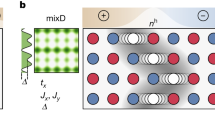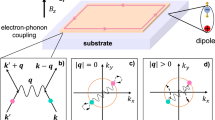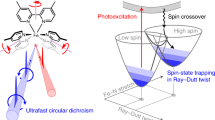Abstract
MISS ROSS has done a useful service in directing attention to the value of the Beevers-Lipson strips for the process of Fourier analysis. These strips were originally designed for Fourier synthesis in crystal-structure determination, and for this purpose printed copies have been supplied to some forty crystal-structure laboratories (a few copies of the uncut tables are still available from this address). It seems likely, however, that the application to Fourier analysis is of rather wider interest. Prof. Max Born suggested this use of the strips to us some years ago, but it was only after inquiries by other workers, and finally by hearing of the successful work of Miss Ross, that we have come to realize that the strips, provide by far the most convenient practical method of Fourier analysis available in an ordinary laboratory.
This is a preview of subscription content, access via your institution
Access options
Subscribe to this journal
Receive 51 print issues and online access
$199.00 per year
only $3.90 per issue
Buy this article
- Purchase on SpringerLink
- Instant access to full article PDF
Prices may be subject to local taxes which are calculated during checkout
Similar content being viewed by others
References
Beevers, Proc. Phys. Soc., 51, 660 (1939). Macewan and Beevers, J. Sci. Instr., 19, 150 (1942).
Author information
Authors and Affiliations
Rights and permissions
About this article
Cite this article
MACEWAN, D., BEEVERS, C. Letter to Editors. Nature 152, 303 (1943). https://doi.org/10.1038/152303a0
Issue date:
DOI: https://doi.org/10.1038/152303a0



